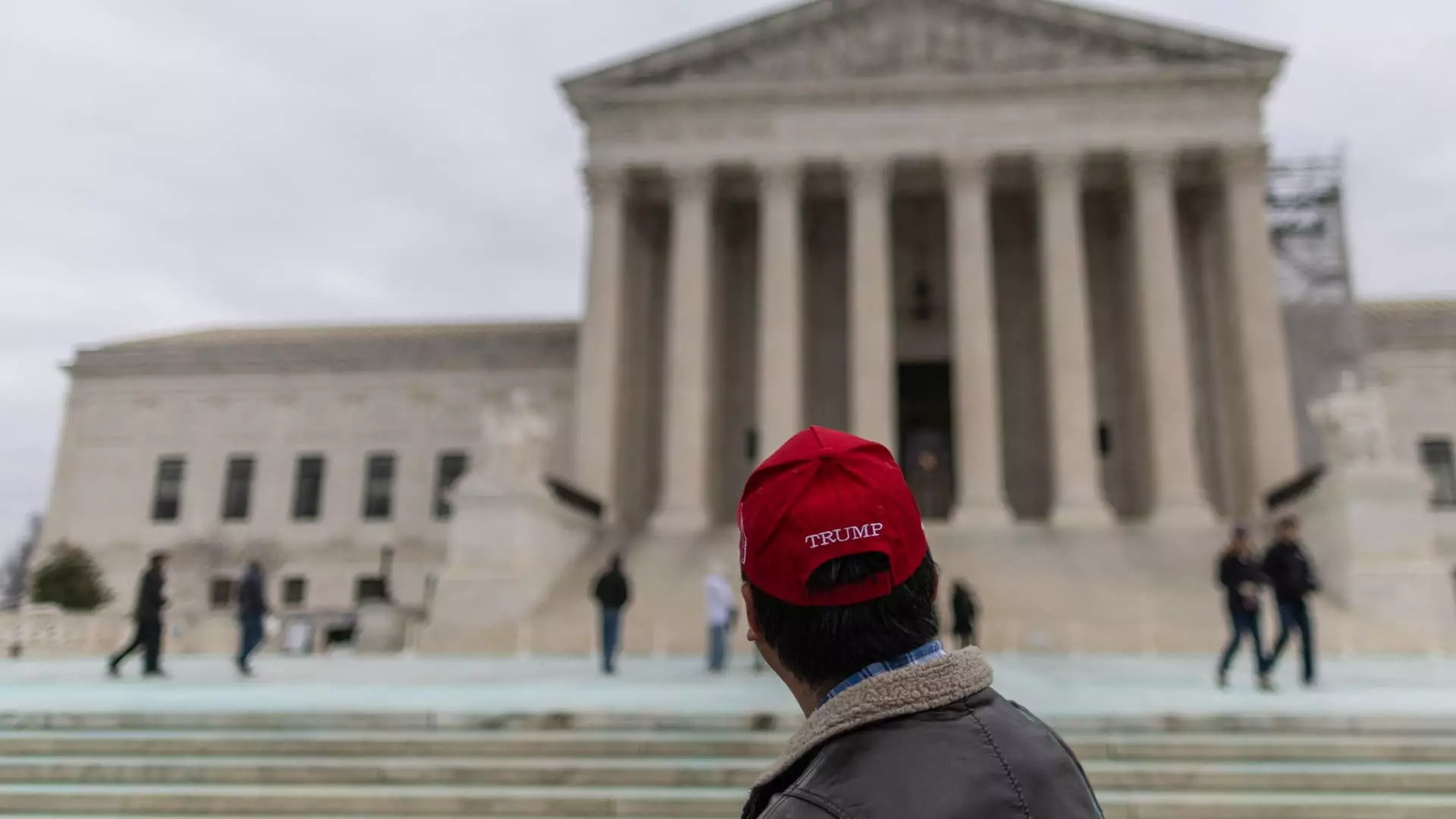In a bold and controversial move, the Trump administration has initiated legal action intended to challenge the stability and independence of the Office of Special Counsel (OSC), an agency mandated to protect federal employees from retaliation for whistleblowing. This development raises significant questions about the commitment to safeguarding whistleblower protections during a time when they are arguably more crucial than ever. The request submitted to the Supreme Court underscores a tilt towards consolidating executive power at the expense of established civil service norms.
Legal Maneuverings and Their Implications
The crux of the Trump administration’s appeal to the Supreme Court revolves around the reinstatement of Hampton Dellinger, the OSC director who was abruptly dismissed. The Justice Department’s legal brief asserts that the court’s order reinstating Dellinger represents an overreach of judicial authority, insisting that the executive branch should maintain control over its personnel decisions without undue interference. This position aligns with a broader narrative seen throughout Trump’s first term, where the administration often characterized institutional checks as hindrances to governance.
Dellinger, however, contests this view by emphasizing that the law stipulates a defined responsibility for justifications behind his termination—specifically, proven performance-related deficiencies, none of which were provided upon his dismissal. The implications of this case extend beyond Dellinger himself; they touch upon the delicate balance of power between the judiciary and the executive, particularly regarding the autonomy of watchdog agencies designed to protect the rights of whistleblowers.
The current legal dispute arises in an intensely charged political environment, marked by allegations of abuse of power within the Trump administration. The emphasis on removing the head of the OSC aligns with the broader trend seen during Trump’s tenure, where federal employees have reported an increase in arbitrary firings and retaliatory actions aimed at curbing accountability within the government. Critics argue that this latest legal maneuver demonstrates a troubling intent to dismantle protections that are foundational to maintaining integrity in public service.
The backdrop to these developments is heightened by the sheer number of dismissals that have occurred since the onset of Trump’s administration. Dellinger himself noted the “unprecedented” scale of these firings, prompting concerns among civil rights advocates and constitutional scholars alike. The actions taken against whistleblowers and the agencies designed to protect them not only pose a threat to individual job security but also signal a potential shift in public service culture, wherein dissent and accountability become perilous and less tolerated.
As the legal saga unfolds, the ramifications for federal employees become particularly pronounced. The OSC exists to provide a safety net for whistleblowers, ensuring that individuals can report wrongdoing without fear of reprisal. Undermining the agency’s leadership may discourage individuals from coming forward, thereby eroding accountability within the federal workforce. This could have dire consequences, particularly in areas where transparency and ethical governance are paramount.
Furthermore, this case could set a troubling precedent for the exercise of executive power concerning civil service protections. If the Supreme Court sides with the Trump administration, it may embolden similar efforts to curtail the independent oversight mechanisms that have long served to bolster institutional integrity across various governmental branches. Such a shift could fundamentally alter the landscape of federal employment, where civil service protections are seen not as rights but as privileges subject to the whims of executive authority.
The unfolding legal drama surrounding the Office of Special Counsel is not merely a case of personnel management; it represents a broader battle for the soul of governance in the United States. As the Trump administration aggressively seeks to consolidate power, the fundamental rights of federal employees hang in the balance. It is incumbent upon citizens, lawmakers, and civil rights advocates alike to monitor these developments closely and advocate fervently for the maintenance of whistleblower protections—an essential bulwark against corruption and abuse in government. A healthy democracy thrives on transparency and accountability, and the fight to preserve these ideals must continue unabated.



Leave a Reply